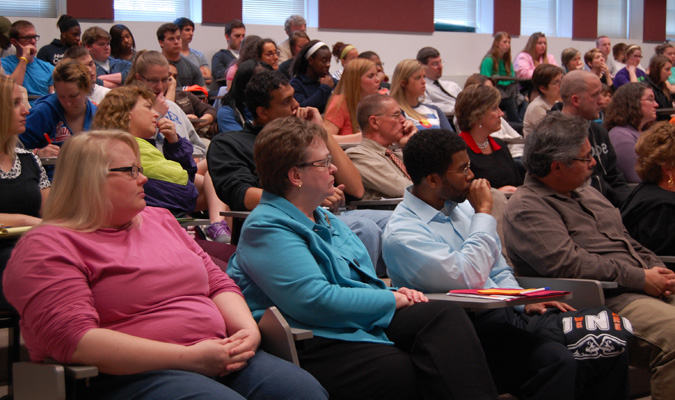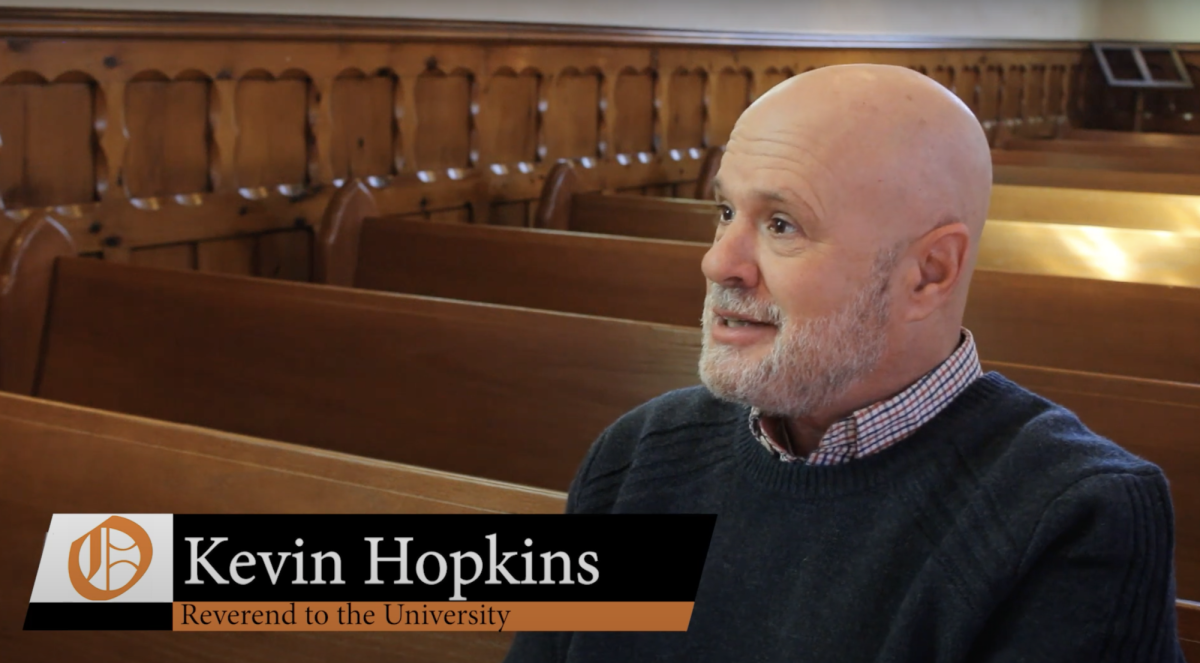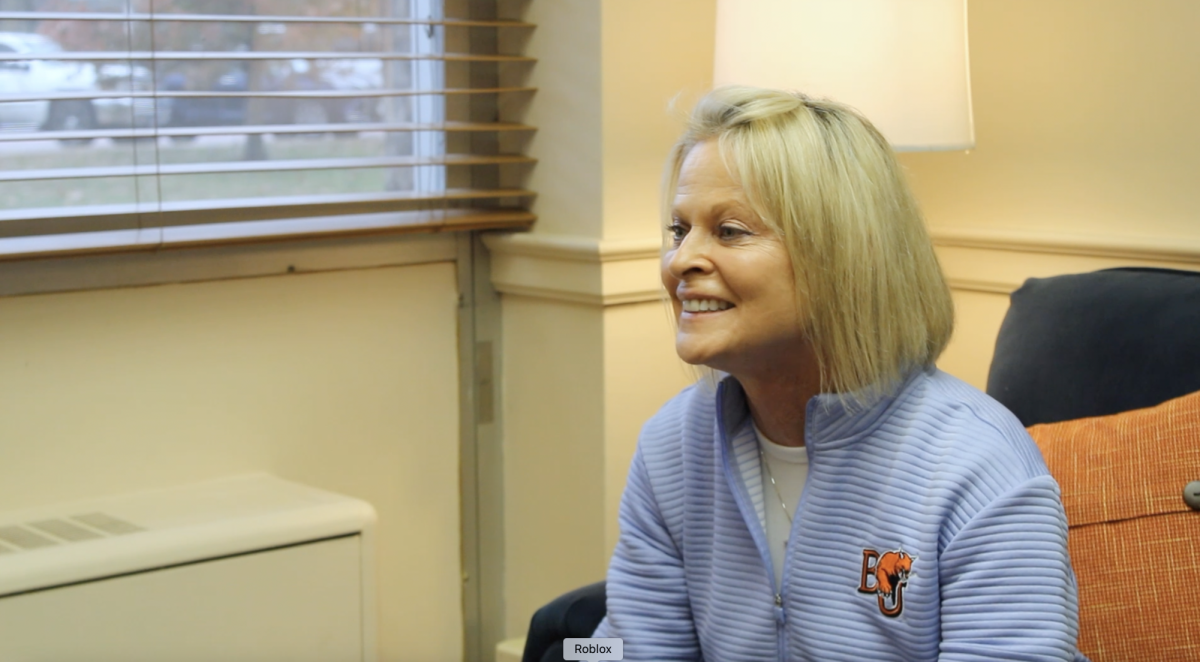While the shooting of 17-year-old Trayvon Martin has been a spotlight in the news for several weeks now, students, staff and faculty at Baker University have used the incident as an opportunity to confront racism and discrimination that still exists today.
Hoods Up: Trayvon Martin Open Forum, a forum to allow students the chance to discuss the historical, psychological and social implications of the shooting of Martin, an African American, by a neighborhood watch volunteer, George Zimmerman, in Florida, was held Tuesday in Mabee 100.
“The purpose of this forum was to inform Baker University students, faculty and staff of the case and to spark discussion,” junior Katerra Shackelford said.
Shackelford began organizing the forum with the help of other Baker students and staff after hearing about the fatal shooting.
Leonard Ortiz, assistant professor of history, spoke about the history of racial profiling and stressed that this was not the first case of racism in modern day America, nor would it be the last.
“Maybe the actors, the plot and the stage is a little different in each incident, but the idea is always the same,” Ortiz said. “Now the question is, how do we change that story so this doesn’t happen again?”
Many in the media continue to claim this was not a case of racial profiling. Jacob Bucher, assistant professor of sociology, said that is called white denial.
“There is a large social concern that people are passionately trying to explain this as being about something other than race,” Bucher said. “But Zimmerman’s behaviors were motivated by racist beliefs and that’s what motivated him to pursue, harass and ultimately pull the trigger.”
Bucher also spoke about the possible reasons Zimmerman, who has not been arrested for murder, has been granted amnesty thus far.
“Trayvon was blamed for the outcome of this because African Americans hold a secondary status in society,” Bucher said. “Just as women are often blamed in rape cases because they hold a secondary status to men.”
Many students and staff brought up the idea of being white and privileged and therefore not being able to understand the situation from Martin’s point of view.
“For the white people in the room, you probably have no memory of growing up and seeing people on television that didn’t look like you,” Joe Watson, assistant professor of mass media said.
While the shooting of Trayvon Martin exposes many flaws in society, Baker students expressed the hope of finding solutions to these problems.
“I really hope people don’t get caught up in picking whether this was Trayvon or Zimmerman’s fault,” senior Clarence Scott said. “People need to use this to understand, ask questions and get down to the stuff that really needs to be talked about.”








